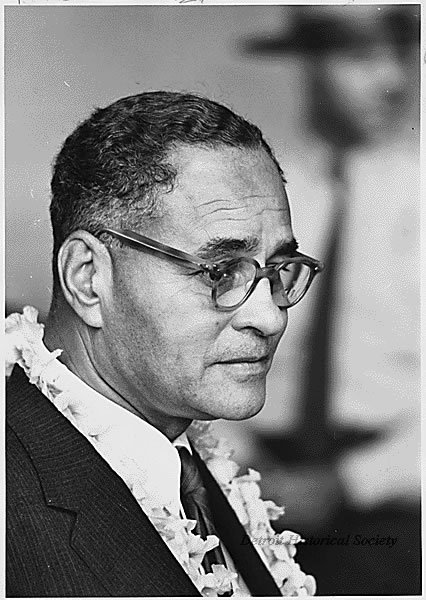Ralph Bunche was a diplomat and educator and the first African American to receive the Nobel Peace Prize. He was born in Detroit on August 7, 1904. In 1915, Bunche and his family moved to New Mexico, hoping that the climate would improve his parents’ failing health. They died two years later, and Bunche and his two sisters were raised by their grandmother in Los Angeles, California. He graduated as valedictorian from Jefferson High School and summa cum laude from the University of California at Los Angeles. Bunche paid for his university studies through scholarships and working as a janitor. After receiving his master’s degree from Harvard University in 1928, Bunche taught at Howard University while studying for a doctorate at Harvard.
Bunche was active in the civil rights movement alongside his studies, and wrote A World View of Race in 1936. He served on President Franklin D. Roosevelt’s “black cabinet,” which consulted on issues facing minorities. During the Truman administration, he declined the position of assistant secretary of state, in opposition to the segregated housing in Washington D.C. Bunche also participated in the Carnegie Corporation’s Study of the Negro in America and helped to lead Martin Luther King Jr.’s march from Selma to Montgomery, Alabama in 1965.
Bunche is best known for is his work with the United Nations, especially in Palestine. He joined the U.N. in 1946 when U.N. Secretary-General Trygve Lie recruited Bunche from the U.S. State Department. Starting in June 1947, Bunche began working with the Jews and Arabs in Palestine. Fighting between the groups intensified in 1948 and the U.N. appointed mediator, Count Folke Bernadotte, was assassinated. As Bernadotte’s chief aide, Bunche became the acting U.N. mediator for Palestine and was able to obtain signatures on armistice agreements between the Arab States and Israel. For this achievement, Bunche was rewarded with a parade on Broadway in New York City, a “Ralph Bunche Day” in Los Angeles, the Spingarn Prize by the NAACP, and the Nobel Peace Prize for 1950. He also received over thirty honorary degrees between 1950 and 1953.
He continued working for the U.N. until shortly before his death on December 9, 1971.
